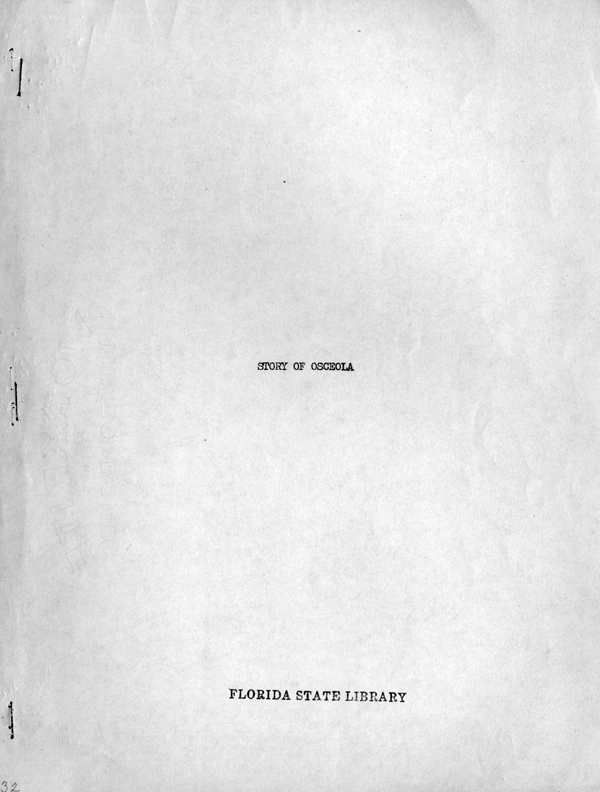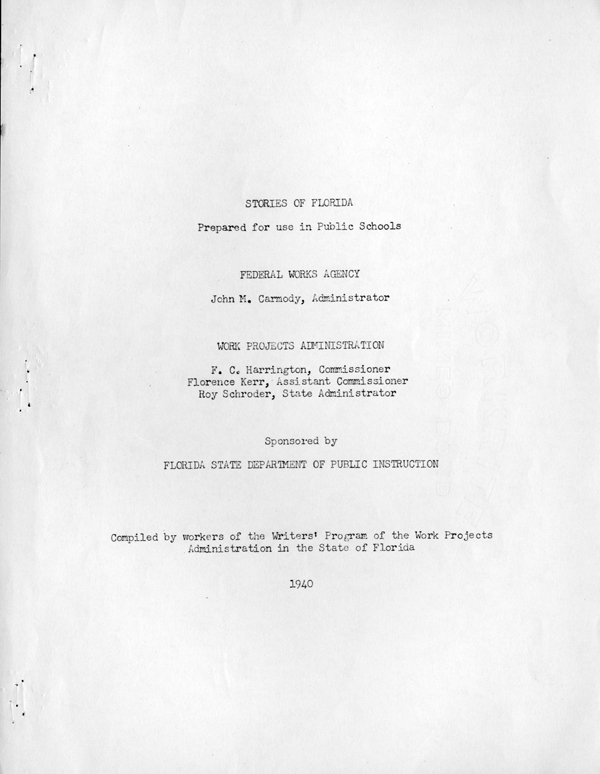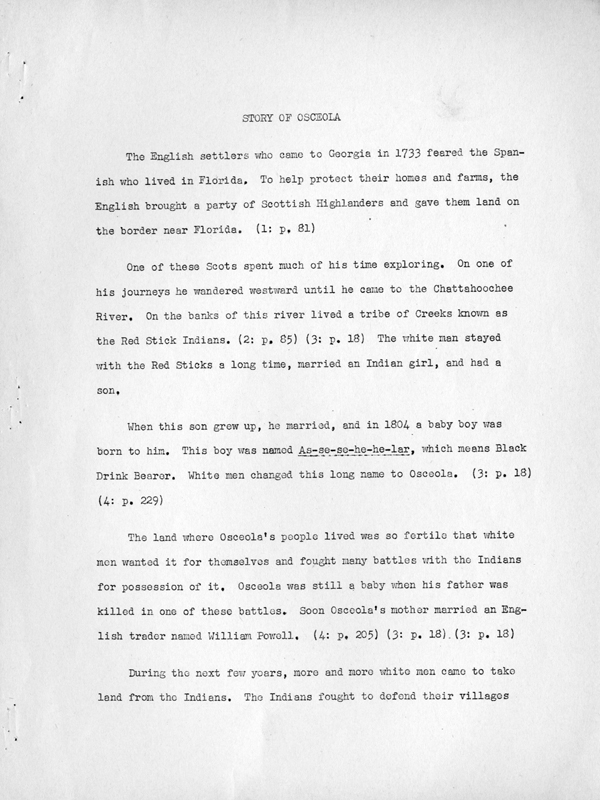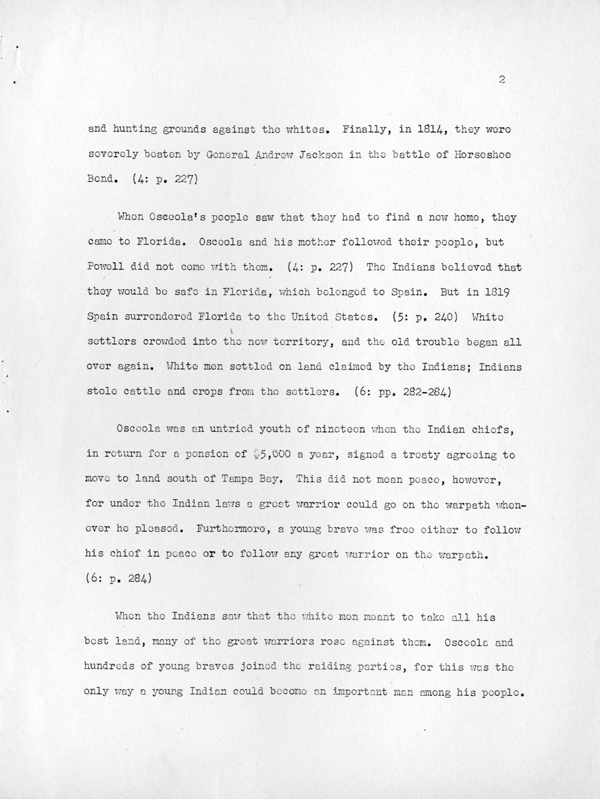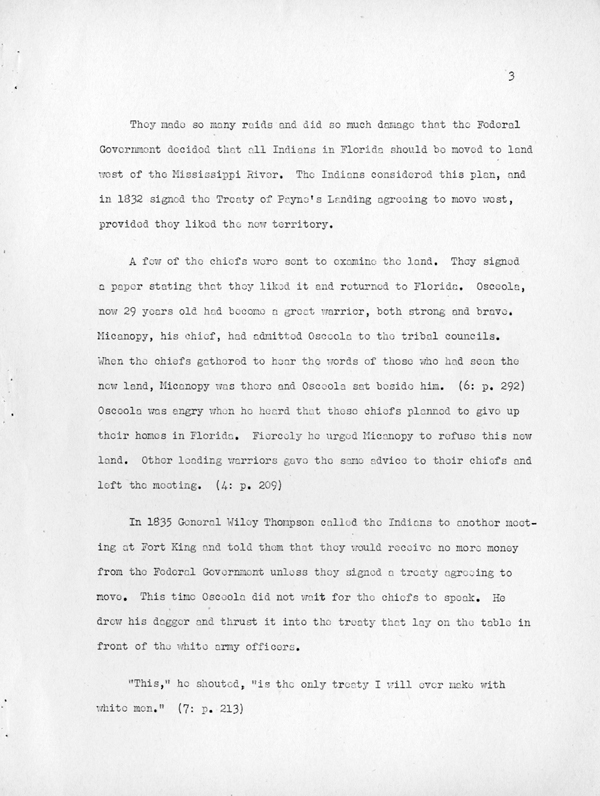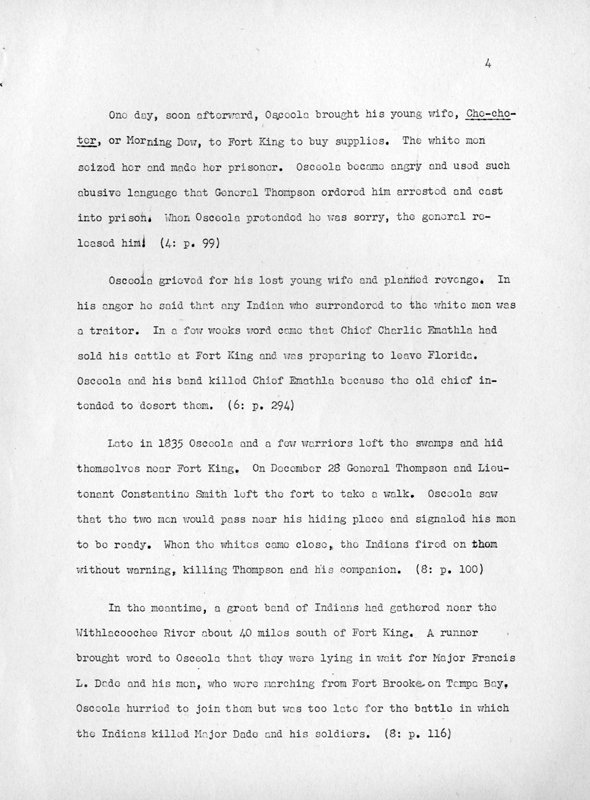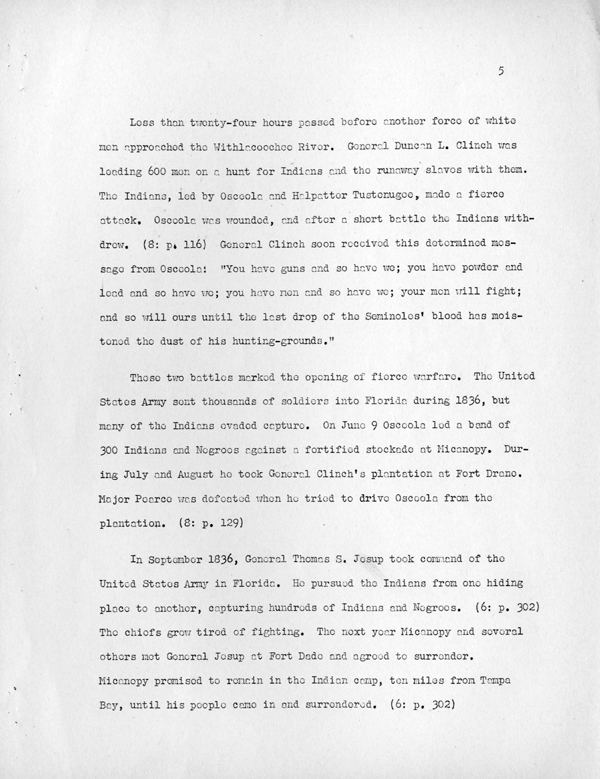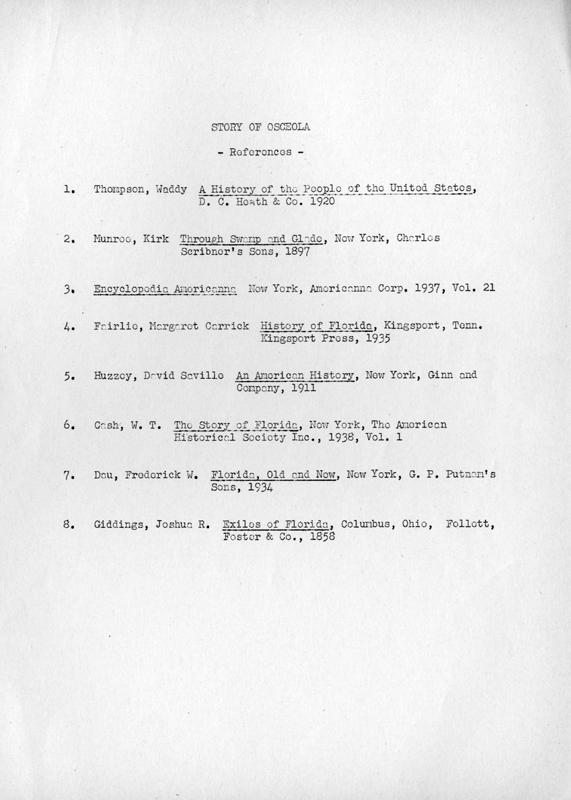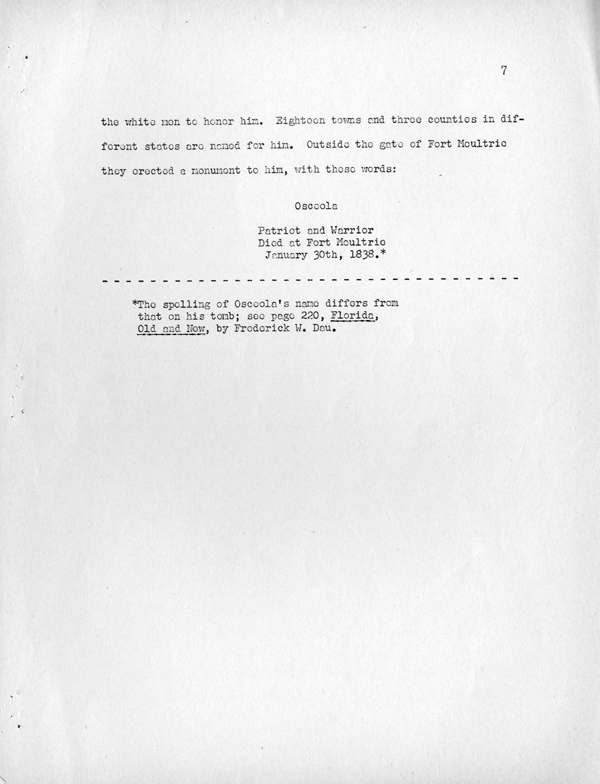Florida Memory is administered by the Florida Department of State, Division of Library and Information Services, Bureau of Archives and Records Management. The digitized records on Florida Memory come from the collections of the State Archives of Florida and the special collections of the State Library of Florida.

State Archives of Florida
- ArchivesFlorida.com
- State Archives Online Catalog
- ArchivesFlorida.com
- ArchivesFlorida.com
State Library of Florida
Related Sites
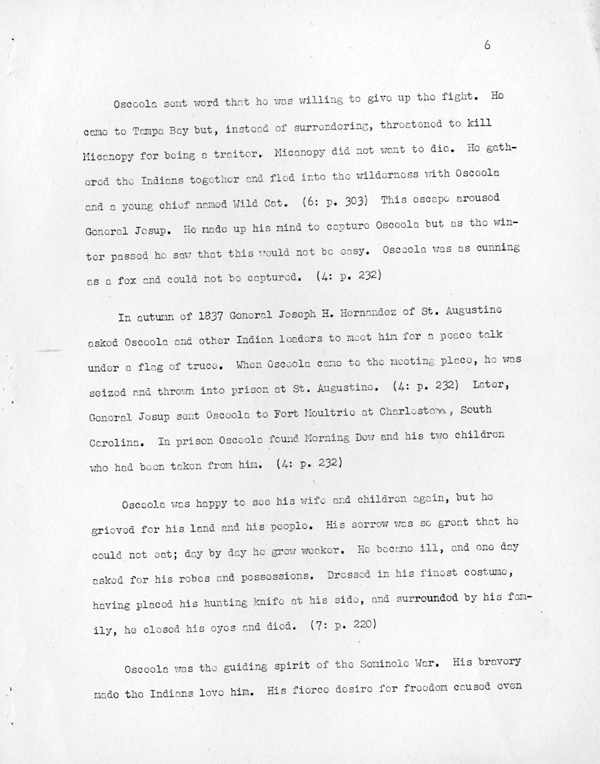
Description of previous item
Description of next item

Title
Published Date
[page 6]
Osceola sent word that he was willing to give up the fight. He
came to Tampa Bay but, instead of surrendering, threatened to kill
Micanopy for being a traitor. Micanopy did not want to die. He
gathered the Indians together and fled into the wilderness with Osceola
and a young chief named Wild Cat. (6: p. 303) This escape aroused
General Jesup. He made up his mind to capture Osceola but as the
winter passed he saw that this would not be easy. Osceola was as
cunning as a fox and could not be captured. (4: p. 232)
In autumn of 1837 General Joseph H. Hernandez of St.
Augustine asked Osceola and other Indian leaders to meet him for a
peace talk under a flag of truce. When Osceola came to the meeting
place, he was seized and thrown into prison at St. Augustine. (4: p. 232)
Later, General Jesup sent Osceola to Fort Moultrie at Charleston, South
Carolina. In prison Osceola found Morning Dew and his two children
who had been taken from him. (4: p. 232)
Osceola was happy to see his wife and children again, but he
grieved for his land and his people. His sorrow was so great that he
could not eat; day by day he grew weaker. He became ill, and one day
asked for his robes and possessions. Dressed in his finest costume,
having placed his hunting knife at his side, and surrounded by his family,
he closed his eyes and died. (7: p. 220)
Osceola was the guiding spirit of the Seminole War. His bravery
made the Indians love him. His fierce desire for freedom caused even
Title
Subject
Description
Source
Date
Contributor
Format
Language
Type
Identifier
Published Date
Image URL
Thumbnail
Transcript Path
Image Path
Image Path - Large
Chicago Manual of Style
Story of Osceola. 1940. State Archives of Florida, Florida Memory. <https://www.floridamemory.com/items/show/181543>, accessed 12 February 2026.
MLA
Story of Osceola. 1940. State Archives of Florida, Florida Memory. Accessed 12 Feb. 2026.<https://www.floridamemory.com/items/show/181543>
AP Style Photo Citation

 Listen: The World Program
Listen: The World Program